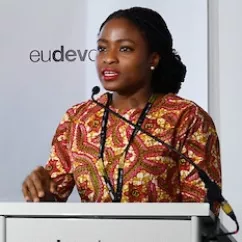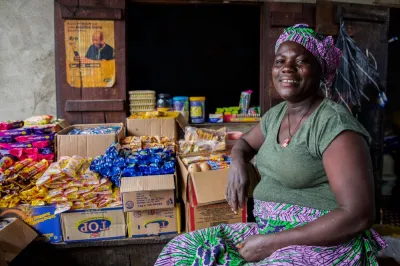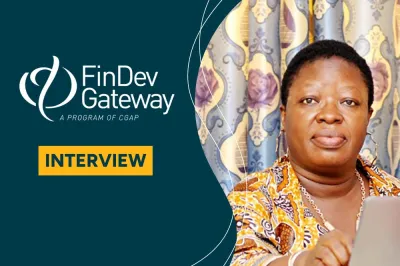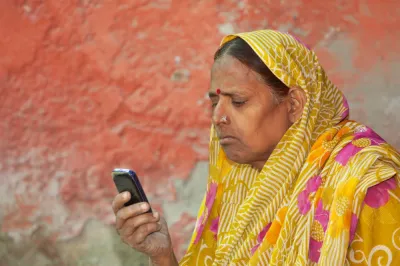Why Do Practitioners Value FinEquity?

Uloma Ogba (Canada) is the Program Coordinator for the Financial Inclusion for Refugees Program based in Kigali, Rwanda. Prior to this, Uloma worked with the UNCDF Zambia team as a Project and Knowledge Management Consultant for the Mobile Money for the Poor program. Uloma holds two Master’s degrees in Medical Informatics (University of Amsterdam) and Medical Physics (Purdue University-USA) and a Bachelor’s degree in Physics (Benedict College-USA). Uloma is also the co-founder of Give Girls A Chance, an NGO focused on improving access to quality education and skills training for girls and young women from low-income communities in Nigeria.
FinDev: Welcome, Uloma. First, can you tell us why you joined FinEquity?
Uloma: As part of UNCDF’s new digital strategy, women are now a key target group in our work. From 2017 to 2018, I led a research project aimed at understanding the level of financial inclusion for Zambian mothers, the challenges they face in accessing and using financial services and the opportunities that exist to meet their needs, wants and aspirations with tailored products and services. At the suggestion of Catherine Highet of CGAP, I joined FinEquity to leverage the collective expertise and experience of a global community focused on advancing women’s financial inclusion.
FinDev: How have you been involved in the community of practice, and what kind of impact has it had on your work?
Uloma: When I joined the group, I was able to access a wealth of information that has greatly increased my knowledge of the subject area. I have been able to identify and draw inspiration from women’s financial inclusion projects across the world to inform the design and implementation of my work with UNCDF in Zambia and now in Rwanda. I was introduced to potential learning opportunities including events, job opportunities and webinars and I’ve also been able to contribute by having a platform to share updates and learnings from my work through blogs and reports.
FinDev: How do you communicate with other FinEquity members? Have you met in person, or do you keep in touch electronically?
Uloma: I communicate within the community of practice mostly via electronic means through Dgroups. I also follow FinEquity on LinkedIn and Twitter and try to engage with content I find relevant and interesting by commenting or sharing. I have not had the opportunity to attend any in-person events yet but that is something I look forward to. I have met and interacted with some FinEquity members at other financial inclusion events and conferences.
FinDev: What has been most helpful to you about being a part of FinEquity?
Uloma: The FinEquity platform is well-structured and it’s always easy to find the information I need. The members of the community of practice are very responsive and interactive and sometimes just by following email threads of responses to questions asked, I have gathered valuable information that I am able to apply to my work later. The community is engaging and enriching and has been a big value addition to helping me grow professionally in the Financial Inclusion sector.
The best part of being a part of FinEquity is the collegial nature of the members. Regardless of level of experience or positions in various institutions, I find that everyone is open to sharing resources, posing questions and seeking answers and looking for opportunities to forge relationships and partnerships to promote the work being done in women’s financial inclusion.
*****
FinEquity is a global community to advance women’s financial inclusion. It aims to provide an inclusive platform for knowledge sharing, learning and exchange on a range of topics related to women’s financial inclusion such as measurement frameworks for women’s inclusion, understanding social norms, identifying scalable innovations, the role of data and the potential and pitfalls of technology. Learn more on how you can join FinEquity >>


